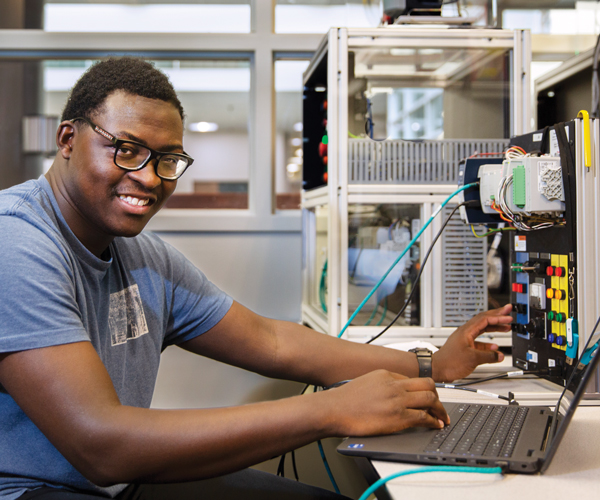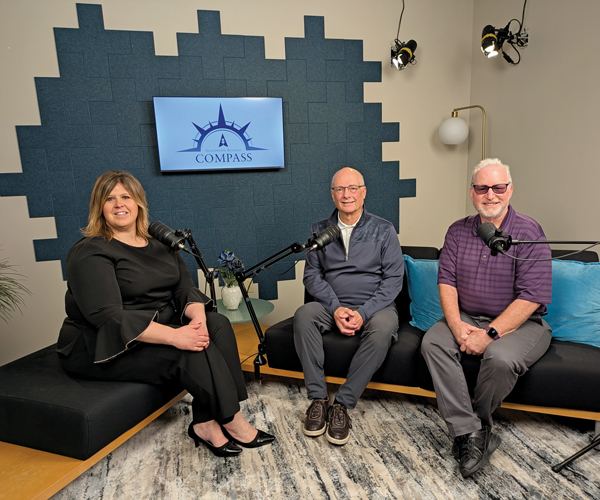On a recent Saturday morning, Margaret Wong was the only person working at her Chester Avenue office, a sprawling beige building featuring her initials emblazoned in bold silver letters. Wong gives her employees weekends off, but the nationally known immigration attorney doesn’t take down time herself.
On Mondays, she rises at 4 a.m. and catches the first flight out of Cleveland to spend the day at her New York office, then catches the last flight back at night. When she’s working out of the Cleveland branch of Margaret W. Wong & Associates, the firm she founded in 1978, Wong goes in at 5:30 a.m. and gets home after 8:30 p.m. On Fridays, she’s in her Columbus office first thing in the morning. She rotates visits to her Chicago, Los Angeles, Atlanta, Nashville, Minneapolis and Raleigh offices.
She has a life membership to the U.S. Sixth Circuit Court and Ohio Eigth Judicial District, is AV rated by Martindale-Hubbell and has been listed in Super Lawyers and Best Lawyers.
“I’ve never seen anyone in my entire life work as hard as she does,” says Scott Bratton, a partner at her firm. “She goes above and beyond what I think most attorneys will do. She will be on the phone at midnight with a client going through their case.”
After 40 years in the field, Wong is as persistent as ever. And at age 66, she still feels like she has something to prove.
What, exactly?
“To prove I’m still relevant and still one of the top in my field,” she says. “I just know that because I’m not as smart as they are, I'm not as American as they are, I have to beat them with my work, with my writing, with my mentoring. You work 10 hours, I can work 10-and-a-half. You work 11, I can do 12.”
This fierce talk belies the friendly, deferential impression Wong leaves. She is warm and effusive, fast-talking and charming — a flatterer who sprinkles generous praise into casual conversation. She transitions seamlessly from contrasting Eastern and Western cultures to quoting Martin Luther King Jr. and detailing the last century of U.S. immigration trends.
She is blunt and laugh-out-loud funny, joking about the euphoria of a courtroom win — “better than ecstasy or sex” — and gesturing wryly to the glittering jewels on her fingers as evidence that, contrary to stereotypes about immigrants, her clients can afford to pay top dollar.
She is insistently humble. Yet each of the edifice’s dozens of rooms is individually, eclectically decorated, but connected by a common theme: Margaret.
There are awards (from the Ellis Island Medal of Honor and Cleveland Rotary Club’s International Service Award to Glamour's Outstanding Working Women prize), gifts from clients, framed articles about her, copies of her book stacked on tables, a photograph of her shaking Barack Obama’s hand and beautiful Chinese artwork.
“Everything here means something,” Wong explains.
The office tells a story: Hers.
The story begins July 27, 1950, in Hong Kong, where Wong was born to tough, tenacious parents who worked in the publishing and writing business.
Wong recalls her mother’s relentless drive as a journalist to get stories first. Kuo Hua Kuan — aka Alice, or “Mama Wong” — died in January.
Her legacy, Margaret says, is “fighting for what’s right.”
That’s exactly what Wong has done her entire career, say the community leaders who Wong counts as friends.
She’s energetic, fiercely loyal, family-oriented, hard-working, generous, brilliant and successful, as well as humble and kind. And she's always ready to show up when called upon.
“One way you can judge people is by taking attendance. Almost everywhere I go, I see her,” says Albert Ratner, co-chairman emeritus of Forest City Realty Trust. “You can call Margaret for anything. She'll be there with both her time and her energy and her money. There are a lot of people who will give their time. There are a lot of people who will give their money. There are not a lot of people who will give both. Margaret does.”
Margaret and her sister, Cecilia, came to the U.S. in 1969 on student visas. Between the two of them, they had four suitcases, a couple hundred dollars and few English words.
Wong studied at Ottumwa Heights College in Iowa, then earned biology and chemistry degrees from Western Illinois University.
Those early years weren’t easy, as she writes in her 2009 book, The Immigrant’s Way. She describes how at school she and her sister got up every morning at 5:30 to work in the cafeteria.
“Even now, 40 years later, I still remember the early morning freezing weather, getting up and putting on clothes, getting ready for school and the day’s testing — and that breakfast for 500 people,” she says. And a little later, “being fired from waitress jobs during college for not being able to distinguish between a Rob Roy with olive, a Manhattan with cherry and a martini with a double twist.”
But she found her way. She earned a law degree in 1976 from University at Buffalo Law School, and passed the bar in New York and Ohio.
Wong settled in Cleveland in 1977. She made her home in Shaker Heights with husband Kam Chan, who died in 2014, and their two children.
“I love our libraries,” she says. “We also have beautiful, beautiful restaurants. It’s not expensive, and our streets are not congested.”
Jerry Sue Thornton, president emeritus of Cuyahoga Community College and president of DreamCatcher Educational Consulting, notes Wong’s dedication to the community. They met in 1994, when Wong joined the Cuyahoga Community College Foundation’s board. She is one of its longest-serving members.
“She takes her place among the business and civic leaders in Cleveland,” says Thornton. “I think she is committed to Cleveland, as is her family. They have all had opportunities to live other places. Cleveland area is home for her.”
Thornton considers Wong a friend, too. She notes Wong’s penchant for giving advice.
“For instance, she told me in terms of my jewelry to always wear pearls. She said, ‘You are a pearl girl,’” Thornton recalls.
Alex Machaskee, retired publisher, president and CEO of The Plain Dealer, has fond memories from his 30-year friendship with Wong, such as their families’ tradition of celebrating Chinese New Year’s together.
“Beyond having an impeccable mind when it comes to the law, Margaret is extremely loyal to her friends. And a very compassionate person. And I would say that with her tremendous successes, she still manages to find ample time for family and friends,” he says. “She’s just a brilliant woman. Not just as an immigration attorney. She’s probably one of the most brilliant women I’ve ever met.”
With signs pointing to tougher enforcement of immigration laws, her firm anticipates a busy workload.
“The Japanese went through it. The Chinese went through it. The Jews went through it. The Irish went through it. The African-Americans went through it,” she says. “[People] should be concerned and fight against it, but they should not be paralyzed. Do something about it.”
It’s safe to say that she will.




